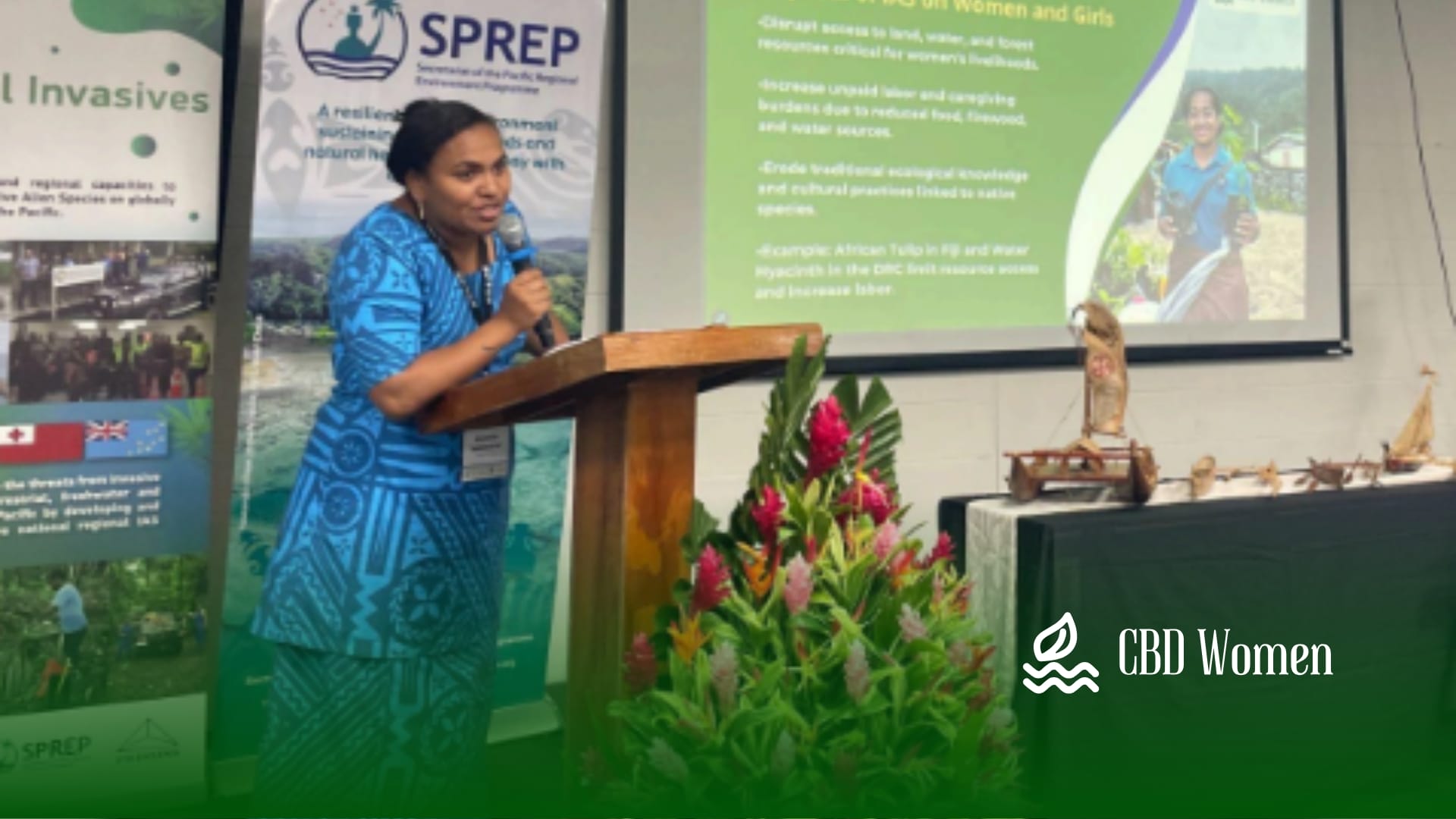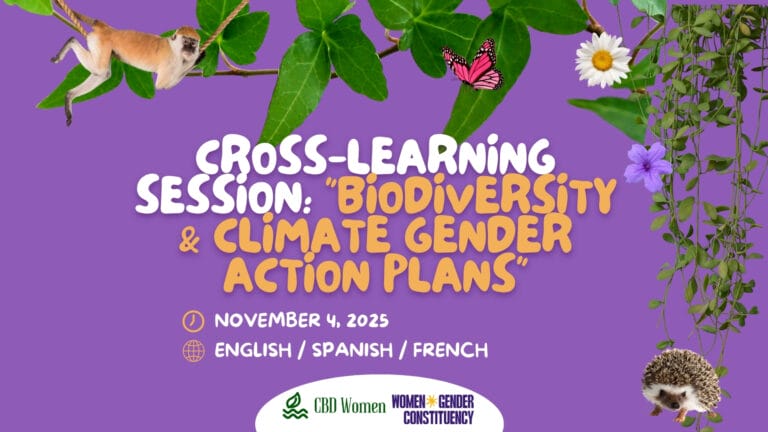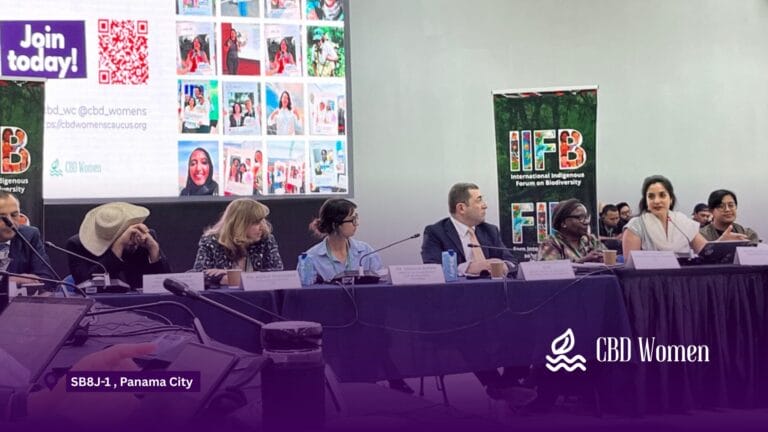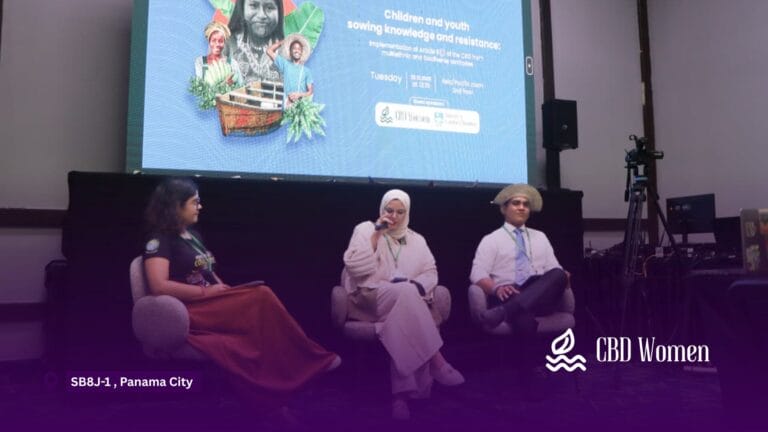By Ms. Alumita Sekinairai, The President of Taikei Women in Conservation, Fiji and CBD Women’s Caucus
Disclaimer: The views expressed in this blog are those of the author and do not necessarily reflect the official position or opinions of the CBD Women’s Caucus.
What happened during the Training Course for Pacific Small Island Developing States on Invasive Alien Species from July 15 to 17, 2025?
From July 15–17, 2025, the CBD Women’s Caucus was represented at the Training Course for Pacific Small Island Developing States on Invasive Alien Species (IAS) in SPREP Headquarters, Apia, Samoa, emphasizing the critical role of women and girls, including indigenous women, in biodiversity conservation. The event provided a platform to amplify gender perspectives in addressing invasive species threats in island ecosystems. For the CBD Women’s Caucus, this was an important opportunity to promote gender justice, traditional knowledge, and equity within environmental governance.
The training brought together government representatives, civil society organizations, conservation practitioners, and Indigenous knowledge holders from Pacific SIDS. The event focused on strengthening IAS management capacity and promoting community-centered approaches to biodiversity conservation. Aligning with the CBD Women’s Caucus mission, the event spotlighted the intersection of Women’s and girls’ rights, indigenous rights, and invasive species control.
Our representative for this training was Ms. Alumita Sekinairai represented the CBD Women’s Caucus at the training. The President of Taikei Women in Conservation, Fiji. A marine scientist and advocate for Indigenous and local communities, Alumita presented on the differentiated impacts of Invasive Alien Species (IAS) on women and the unique contributions of Women from Indigenous Peoples and local communities for managing invasive species in the Pacific Islands.
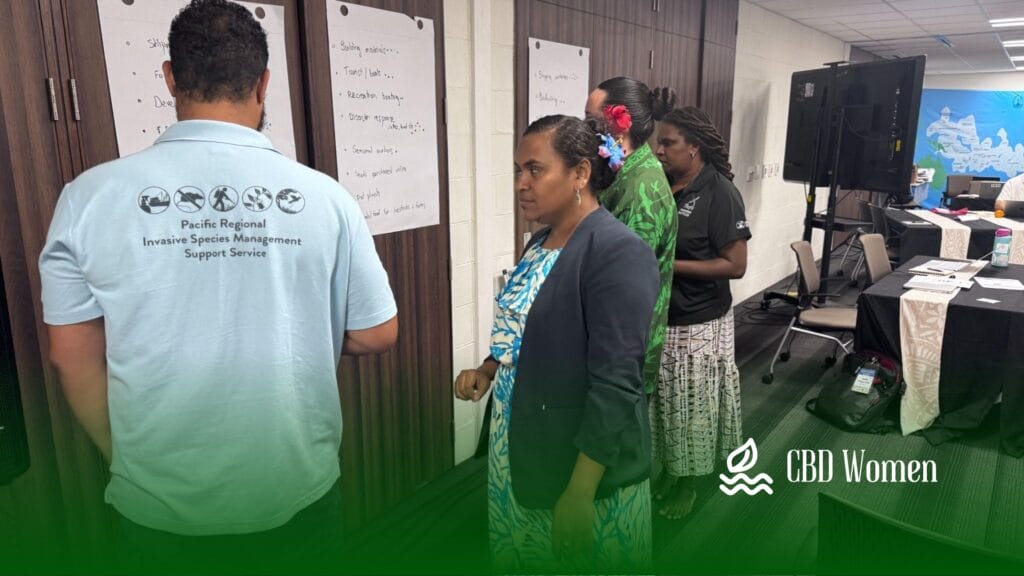
Participants exercise during the Training Course for Pacific Small Island Developing States on Invasive Alien Species (IAS).
Let’s discover the key highlights from the training
Ms. Sekinairai delivered a presentation titled «Exploring the Impacts of Invasive Species on Island Communities and Women,» highlighting:
- The disproportionate burden the Invasive Alien Species (IAS) places on women’s labor and caregiving roles;
- The erosion of traditional ecological knowledge and cultural practices due to Invasive Alien Species (IAS);
- Case studies, including the African Tulip in Fiji and the Water Hyacinth in the DRC.
The CBD Women’s Caucus representative emphasized how women, including Women from Indigenous Peoples and local communities, are often the first to detect ecological changes due to their close interaction with land and sea. Examples included:
- Indigenous Fijian women leading climate-resilient nursery initiatives restoring native and totemic trees;
- Pygmy women in the DRC are engaging in manual removal and ecological restoration.
But what the session called for were gender-responsive policies that:
- Recognize and fund women-led solutions;
- Secure Indigenous land/resource rights;
- Integrate sex-disaggregated data and gender indicators;
- Ensure full participation of women in Invasive Alien Species (IAS) governance.
Outcomes and Next Steps
The event reaffirmed the need for cross-sectoral and inclusive approaches in Invasive Alien Species (IAS) management. Key takeaways included:
- Greater recognition of traditional knowledge in biodiversity strategies;
- Stronger collaboration between gender advocates and biodiversity practitioners;
Commitment to tracking gender responsiveness under the Kunming-Montreal Global Biodiversity Framework.

